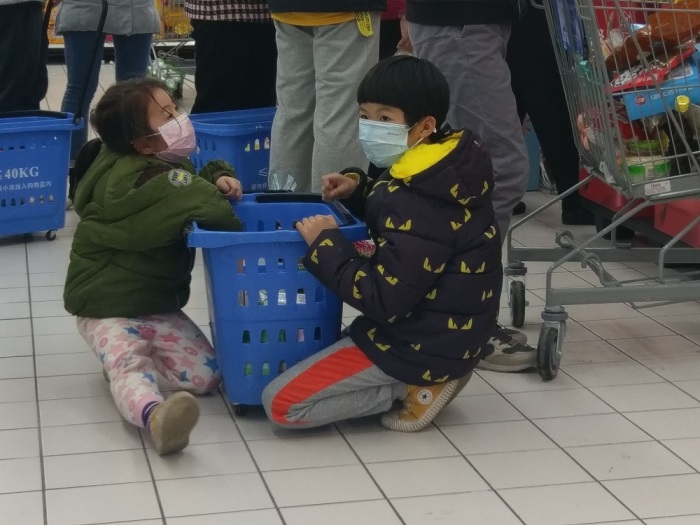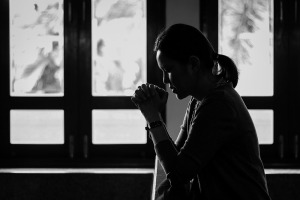World Vision's $3.7 million coronavirus campaign to aid nearly 400,000 in China

As over 1,600 people in China have died due to the outbreak of the novel coronavirus, the international evangelical humanitarian agency World Vision is spending millions to provide assistance to nearly 400,000 people in the midst of the deadly health crisis.
Sponsoring over 55,000 children and employing 300 staffers in China, World Vision is one of the largest humanitarian aid organizations operating in the country.
The organization remains concerned about the increasing rate of confirmed coronavirus cases as China reported at least 121 more deaths from the virus on Friday. The Chinese government reported Saturday that 1,665 people have died from the virus.
Erica Van Deren, World Vision program manager for humanitarian and emergency affairs, told The Christian Post that about 39,000 of World Vision’s sponsored children live in areas of China that are at “immediate risk” of the coronavirus.
However, she said that none of the World Vision sponsor children have contracted the virus.
“We’re working with our sponsor children and their families to make sure their families have the protective equipment that they need,” Van Deren said. “Then also [they need the] education and understanding of how they need to protect themselves from this and talk to kids about the fear and stress they may be having.”
World Vision aims to help 390,000 people in 10 Chinese provinces by distributing personal protective equipment and sanitation products that include facemasks, thermometers, sanitizers and soap.
The cost of World Vision’s coronavirus-related efforts in China is estimated to be about $3.7 million.
Van Deren said World Vision has already distributed 50,000 hospital-grade facemasks to people in five counties in four provinces.
“These are incredibly poor families,” she said. “World Vision China has a history of addressing the needs of these communities.”
World Vision will work with local partners to reach vulnerable families to educate them on the importance of proper hygiene and handwashing techniques.
In addition to helping sponsor children and their families, World Vision is also helping local community health workers in provinces like Hubei and Hunan to ensure that they have the right protective supplies. Those include gowns, gloves, eye protection and respirators.
World Vision will also seek to assist Chinese institutional homes for vulnerable children. Such homes include orphanages or centers for disabled children.

“Right now, that is sort of a gap in the response,” Van Deren explained. “World Vision is helping to fill that gap and working with the government to make sure that the people working in those homes have the protective equipment that they need.”
World Vision has experience assisting vulnerable communities through its work in past health crises such as Zika, Ebola and H1N1.
As the total number of coronavirus cases has surpassed 68,500 worldwide, World Vision is also working on a global preparedness plan with all of its offices, especially those bordering China and some of its offices in Africa.
As of Saturday, four reported coronavirus-related deaths have been reported outside of China.
“We don’t want anybody out there to think there is a big fear of transmission being outside of China,” Van Deren said. “Really, the biggest concerns are inside China. But every office is assessing what is the World Vision capacity to respond if this were to come [to their countries] and if the host governments are ready to respond if this were to happen.”
Van Deren said that in Vietnam, Nepal, Mongolia, Myanmar and the Philippines, they are confident in the abilities of the World Vision offices and the national governments to respond.
However, there is concern about countries with inadequate health systems.
“Our biggest concern is if this were to go into countries that don’t have strong health systems or don’t have strong governments that are able to control and trace the virus,” she stressed.
“What we have right now is the grace of time. Let’s be thinking about what would happen if this were to come to a country in southern Africa and think about who would lead our response there and who would be our public health leaders.”
“In a lot of these places we have worked for a long time on infectious diseases like Zika, Ebola and HIV and we already have strong connections to the ministry of health and local health workers,” she added.
“There has just been an incredible amount of learning from the Ebola outbreak that we can be applying to this coronavirus outbreak.”
In the U.S. there have been 15 cases of the coronavirus confirmed in seven states.
"Right now we're in an aggressive containment mode," Centers for Disease Control Director Dr. Robert Redfield told CNN, adding that they don’t know a lot about the virus.
"This virus is probably with us beyond this season, beyond this year, and I think eventually the virus will find a foothold and we will get community-based transmission."
Follow Samuel Smith on Twitter: @IamSamSmith
or Facebook: SamuelSmithCP





























